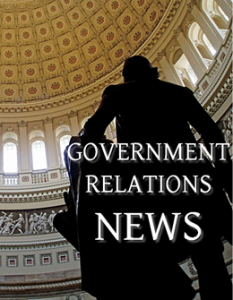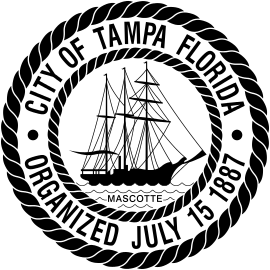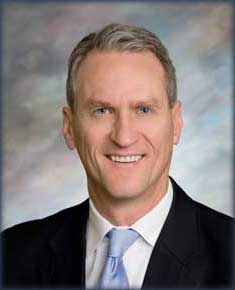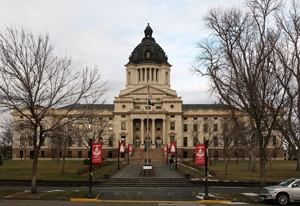February 10, 2017 •
Texas Ethics Reform Passes in Senate
Texas ethics overhaul, Senate Bill 14, passed unanimously in the Senate this week and is headed to the House. Gov. Greg Abbott released a statement praising the Senate’s swift movement, stating his confidence the comprehensive reforms will be passed. An […]
 Texas ethics overhaul, Senate Bill 14, passed unanimously in the Senate this week and is headed to the House.
Texas ethics overhaul, Senate Bill 14, passed unanimously in the Senate this week and is headed to the House.
Gov. Greg Abbott released a statement praising the Senate’s swift movement, stating his confidence the comprehensive reforms will be passed.
An identical bill, House bill 1238, as well as six separate back-up bills duplicating each of the six articles in the reform package, were filed to avoid replicating the failure of a large ethics reform package during the 2015 legislative session.
February 10, 2017 •
News You Can Use Digest – February 10, 2017
National: Scores of State Lawmakers Took Trips Subsidized by Controversial Turkish Opposition Movement Center for Public Integrity – Liz Essley Whyte | Published: 2/9/2017 Scores of state lawmakers from around the country have accepted trips subsidized by affiliates of a Turkish opposition group, […]

National:
Scores of State Lawmakers Took Trips Subsidized by Controversial Turkish Opposition Movement
Center for Public Integrity – Liz Essley Whyte | Published: 2/9/2017
Scores of state lawmakers from around the country have accepted trips subsidized by affiliates of a Turkish opposition group, which is blamed by that country’s government for a failed coup attempt. The Center for Public Integrity found some state lawmakers who went on the trips later introduced resolutions supporting Turkish opposition leader Fethullah Gulen’s controversial Hizmet movement. And some have supported charter schools that are part of a network of roughly 160 taxpayer-funded schools run by friends of the movement. Among those who went on the trips were legislators who had rarely traveled overseas. Many had little knowledge of Gulen or Turkish politics, and few of their states have trade connections to Turkey.
Federal:
Kellyanne Conway Promotes Ivanka Trump Brand, Raising Ethics Concerns
New York Times – Richard Pérez-Peña and Rachel Abrams | Published: 2/9/2017
President Trump’s official counselor, Kellyanne Conway, may have broken an ethics rule when she told television audiences to “go buy Ivanka’s stuff.” Federal employees are banned from using their public office to endorse products. Conway, appearing on “Fox & Friends” from the White House briefing room, was responding to boycotts of Ivanka Trump merchandise and Nordstrom’s discontinuation of stocking her clothing and shoe lines, which the retailer said was in response to low sales and which the president assailed as unfair. Don Fox, former general counsel and acting director of the Office of Government Ethics, said: “Conway’s encouragement to buy Ivanka’s stuff would seem to be a clear violation of rules prohibiting misuse of public office for anyone’s private gain.”
The Silencing of Elizabeth Warren and an Old Senate Rule Prompted by a Fistfight
Washington Post – Derek Hawkins | Published: 2/8/2017
Republican senators voted to formally silence a Democratic colleague for impugning a peer, U.S. Sen. Jeff Sessions, by condemning his nomination for attorney general while reading a letter from Coretta Scott King. U.S. Sen. Elizabeth Warren had been holding forth on the chamber floor on the eve of Sessions’ expected confirmation vote, reciting a 1986 letter from King that criticized Sessions’ record on civil rights. Majority leader Mitch McConnell stepped forward with an objection, setting off an extraordinary confrontation in the Capitol and silencing a colleague, procedurally, in the throes of a contentious debate over President Trump’s cabinet nominee.
Under-the-Radar Change to Congressional Ethics Watchdog May Weaken It
Washington Post – Elise Viebeck | Published: 2/8/2017
While initial Republican efforts to weaken the Office of Government Ethics (OGE) were thought to have been rebuffed, one little-noticed change that slipped through afterward is prompting fears among watchdogs that it could undermine the OGE’s work. The change relates to how new members are chosen for the OCE’s board, which authorizes its investigations. Under the final House rules package, the speaker and minority leader no longer must agree on their respective appointments to the board – they merely have to notify each other before proceeding with their own selections. That is raising concerns it could make the OCE more vulnerable to partisanship and, in the process, weaken its investigations of misconduct by lawmakers.
From the States and Municipalities:
Alabama – Luther Strange Senate Appointment Dismays Some Alabama Republicans
U.S. News & World Report – Steven Nelson | Published: 2/9/2017
Alabama Gov. Robert Bentley appointed state Attorney General Luther Strange to fill the Senate seat left vacant by Jeff Sessions, who was just confirmed as U.S. attorney general. The appointment follows questions about what role, if any, the Alabama attorney general’s office had in probing controversies swirling around the governor. The state attorney general’s office is conducting an investigation related to Bentley, against whom Strange requested impeachment efforts be stalled in November, citing “related work” by his office. Bentley is caught in a complex web of scandals involving an alleged affair with a now-former senior aide, and the alleged retaliatory firing of a state official who cooperated in the corruption prosecution of a legislative leader later sentenced to prison.
California – California’s Top Court to Decide Whether Emails and Texts Sent on Personal Devices Are Public Record
Los Angeles Times – Maura Dolan | Published: 2/2/2017
During a December hearing, the California Supreme Court appeared ready to rule that government business conducted on private telephones and computers must be made public. The quandary expressed by justices was how to fashion a rule to protect the privacy of government employees and still ensure that public business was open to inspection. Karl Olson, representing the news media, argued many public officials are deliberately using personal computers and telephones to conceal their communications Associations of cities, counties, and school boards throughout the state say any rule that requires them to turn over communications on private devices would be a huge and costly burden.
Connecticut – State Democrats Say Federal Campaign Finance Probe Has Ended
Washington Times – Susan Haigh (Associated Press) | Published: 2/2/2017
A federal investigation into whether Connecticut Democrats illegally raised money in support of the re-election of Gov. Dannel Malloy in 2014 has ended without criminal charges. Federal investigators looked into whether the Democratic Party illegally spent $278,000 in political contributions to pay for a mailing benefiting Malloy’s campaign. The money came from state contractors and was earmarked for federal candidates. But the state party argued the mailers touting Malloy’s record were part of an overall “get-out-the-vote” effort that also helped federal candidates.
Illinois – Redflex to Pay $20 Million to Chicago to Settle Lawsuit over Bribery Scheme
Chicago Tribune – David Kidwell | Published: 2/6/2017
A red-light camera company whose former chief executive pleaded guilty to a federal bribery charge will pay $20 million to settle a lawsuit with the city of Chicago. The deal ends a lawsuit the city filed against Redflex Traffic Systems, accusing Redflex of fraud and making false statements when it contracted in 2003 to run Chicago’s red-light camera enforcement program. Former Redflex Chief Executive Officer Karen Finley and former Chicago transportation official John Bills were convicted in a $100 million kickback scheme. Finley was given a two-year prison term and Bills received a 10-year sentence. Bills was accused of accepting envelopes stuffed with cash, along with gifts to help Redflex obtain contracts in a decade-long scheme.
New Mexico – Lobbyist Loophole Fix Stalls in Senate Committee
New Mexico In Depth – Sandra Fish and Trip Jennings | Published: 2/8/2017
A New Mexico Senate committee failed to approve a bill that would close a loophole a new law that allows lobbyists to disclose much less about how they spend money on public officials than they used to. The law passed last year removed a requirement for lobbyists to report expenses spent on individual lawmakers below $100. Previously, lobbyists had to report all spending, itemizing expenses spent above $75 per lawmaker and reporting the cumulative amount of expenses below $75 per lawmaker. As of July 1, 2016, lobbyists did not have to report any spending below $100 per lawmaker. The legislation’s sponsor said he will try again to get Senate Bill 168 passed by the Rules Committee.
New Mexico – Strange Bedfellows: How four Capitol couples negotiate love, lobbying, and legislating
Santa Fe Reporter – Matt Grubbs | Published: 2/8/2017
Four couples roaming the halls of the New Mexico Capitol have a unique relationship – one is legislator and the other is a lobbyist. The relationships bring with it both a comfortable familiarity and a set of unique pitfalls. State law does not speak specifically on the issue of a lobbyist-lawmaker relationship. The Governmental Conduct Act does say disclosure of potential conflicts “shall be a guiding principle for determining appropriate conduct. At all times, reasonable efforts shall be made to avoid undue influence and abuse of office in public service.”
Oklahoma – Capitol Influence: Lobbyists need more than money to succeed at state Capitol
Tulsa World – Barbara Hoberock and Randy Krehbiel | Published: 2/5/2017
To the public, influence at the state Capitol may seem to come down to who hands out the most campaign cash and hires the most lobbyists. Former legislative leaders acknowledged the roles of money and lobbyists in Oklahoma, but they also cited individual constituents, public opinion, unexpected events, lawmakers’ own experiences, and subtle and not-so-subtle attempts to shape perceptions of government.
Tennessee – Analysis: The power of Tennessee lobbyists
The Tennessean – Dave Boucher | Published: 1/28/2017
An analysis of lobbyist compensation, expenses, campaign expenditures, and legislative registration in recent years shows millions of dollars spent by hundreds of organizations every year to become power players at the statehouse. Lobbyists routinely meet with legislators, create client strategies, and often write the actual language in a bill. A winning strategy does not always mean passing a new law. Many times a win means defeating legislation or orchestrating a public campaign to educate key lawmakers. Some say this gives a handful of people too much influence. Lobbyists, however, say they merely represent the interests of a broad swath of constituents and do much more than try to win for their client.
Texas – Citizens United Lawyer Targets Texas Campaign Finance Laws
Arizona Daily Star – David Saleh Rauf (Associated Press) | Published: 2/7/2017
A case before the Texas Supreme Court could overturn longtime state laws that require certain political committees to disclose donors and ban direct political contributions from corporations. The conservative group King Street Patriots has been the focus of a longstanding lawsuit by the state Democratic Party accusing the organization of violating campaign finance laws by engaging in political behavior when it dispatched poll watchers on behalf of the Texas Republican Party during the 2010 election. But the nonprofit, represented by James Bopp, architect of the landmark Citizens United case, has fired back with a counterclaim challenging numerous provisions of the state’s campaign finance law.
Utah – Gold Coins, Posh Trips Form Backdrop in Utah Bribery Trial
Fresno Bee – Lindsay Whitehurst (Associated Press) | Published: 2/7/2017
A corruption scandal that prosecutors say connected wealthy businesspeople and powerful politicians against a backdrop of luxury vacations, gold coins, and a surreptitiously recorded meeting at a Krispy Kreme doughnut shop is set to come to a Utah courtroom. Former Utah Attorney General John Swallow is charged with 13 counts of bribery, evidence tampering, and other crimes. He was arrested in 2014, along with his predecessor and onetime boss, Mark Shurtleff, who had been attorney general for more than a dozen years. Authorities said the two hung a virtual “for sale” sign on the door to the state’s top law enforcement office, taking campaign donations and gifts like beach vacations in exchange for favorable treatment in investigations.
Washington – Trump EPA Official Juggles Two Jobs in Two Washingtons, and It Hasn’t Gone Well.
Washington Post – Lisa Rain and Bradley Dennis | Published: 2/7/2017
Washington Sen. Doug Ericksen defended his role at the U.S. Environmental Protection Agency (EPA), saying he could handle his Senate responsibilities while also helping the Trump administration. Ericksen stressed that his federal government job was only temporary, and has not hindered the Senate or an environmental committee he chairs. Ericksen is one of 10 people on the EPA transition team and is serving as communications director in Washington, D.C. for up to 120 days. Because of the job, he has missed significant time in Olympia during the first few weeks of the legislative session. Ericksen’s absence is the linchpin to party control of the state Senate, since Republicans control the chamber by just one vote. Without him, party-line votes are tied, with the lieutenant governor in a position to break the tie in Democrats’ favor.
 State and Federal Communications produces a weekly summary of national news, offering more than 60 articles per week focused on ethics, lobbying, and campaign finance.
State and Federal Communications produces a weekly summary of national news, offering more than 60 articles per week focused on ethics, lobbying, and campaign finance.
February 9, 2017 •
Canada’s Conflict of Interest and Ethics Commissioner Will Not Seek Reappointment
On July 8, Conflict of Interest and Ethics Commissioner Mary Dawson will conclude her appointed position with Canada’s federal ethics agency. Dawson has chosen not to seek reappointment as commissioner, according to The Hill Times. Some critics had argued the […]
 On July 8, Conflict of Interest and Ethics Commissioner Mary Dawson will conclude her appointed position with Canada’s federal ethics agency. Dawson has chosen not to seek reappointment as commissioner, according to The Hill Times.
On July 8, Conflict of Interest and Ethics Commissioner Mary Dawson will conclude her appointed position with Canada’s federal ethics agency. Dawson has chosen not to seek reappointment as commissioner, according to The Hill Times.
Some critics had argued the possibility of a reappointment could have influenced Dawson’s impartiality with inquiries into the current Liberal government. Her appointment was to have ended in the summer of 2016, but was twice temporarily extended by the Liberal government.
Besides administering the federal conflict of interest laws for public office holders and members of the House of Commons, the Office of the Conflict and Ethics Commissioner provides confidential advice to the prime minister about conflicts of interest and ethics issues.
February 9, 2017 •
Thursday’s Government Relations and Ethics News
Lobbying “Records Show How Air Force Nominee Skirted Lobbying Restrictions” by Patrick Malone (Center for Public Integrity) for Politico “Nations Turn to Lobbyists Amid Trump Upheaval” by Megan Wilson for The Hill New Mexico: “Strange Bedfellows: How four Capitol couples […]
 Lobbying
Lobbying
“Records Show How Air Force Nominee Skirted Lobbying Restrictions” by Patrick Malone (Center for Public Integrity) for Politico
“Nations Turn to Lobbyists Amid Trump Upheaval” by Megan Wilson for The Hill
New Mexico: “Strange Bedfellows: How four Capitol couples negotiate love, lobbying, and legislating” by Matt Grubbs for Santa Fe Reporter
Campaign Finance
Alaska: “After Alaska Lawmaker’s Fundraising Controversy, Senate Considers Tighter Rules” by Caroline Halter for Alaska Public Radio
Arizona: “Citizens United Lawyer Targets Texas Campaign Finance Laws” by David Saleh Rauf (Associated Press) for Arizona Daily Star
Ethics
“Department of Defense Looks to Rent Space in Trump Tower” by Drew Harwell for Washington Post
Arizona: “On Third Try, Will Phoenix Create Commission to Enforce Ethics Rules?” by Dustin Gardner for Arizona Republic
South Dakota: “Regulations on Lobbyists, Officials Advance at State Capitol” by James Nord (Associated Press) for McClatchyDC.com
Legislative Issues
“The Silencing of Elizabeth Warren and an Old Senate Rule Prompted by a Fistfight” by Derek Hawkins for Washington Post
North Carolina: “North Carolina Judges Suspend Limit on Governor’s Powers” by Mitch Smith for New York Times
February 8, 2017 •
Phoenix City Council Votes to Create Ethics Commission
On Tuesday, Phoenix City Council voted unanimously to move forward with creating a bipartisan ethics commission. The commission would screen allegations and recommend penalties for city officials who violate the city’s gift policies and other related rules. Under a plan laid out by […]
 On Tuesday, Phoenix City Council voted unanimously to move forward with creating a bipartisan ethics commission. The commission would screen allegations and recommend penalties for city officials who violate the city’s gift policies and other related rules.
On Tuesday, Phoenix City Council voted unanimously to move forward with creating a bipartisan ethics commission. The commission would screen allegations and recommend penalties for city officials who violate the city’s gift policies and other related rules.
Under a plan laid out by a City Council member, potential commissioners are screened by a city board and ultimately appointed by City Council. Phoenix’s current ethics rules are unenforceable as the city lacks a mechanism for investigating ethics complaints and recommending punishment.
This is not the first time Phoenix has attempted to create an ethics commission; previous attempts have been unsuccessful in part due to concerns about the commission becoming a political attack tool.
City Council will still need to approve a final ordinance in order to establish an ethics commission. A final vote on the matter is expected this spring.
February 8, 2017 •
Wednesday’s Government Relations and Ethics News
Lobbying “Lobbyists, Corporate Clients Open Wallets for Trump” by Kate Ackley for Roll Call “Lobbying’s Top 50: Who’s spending big” by Megan Wilson for The Hill Arkansas: “House Approves Bill on Gift Exemptions” by John Moritz for Arkansas Online Campaign […]
 Lobbying
Lobbying
“Lobbyists, Corporate Clients Open Wallets for Trump” by Kate Ackley for Roll Call
“Lobbying’s Top 50: Who’s spending big” by Megan Wilson for The Hill
Arkansas: “House Approves Bill on Gift Exemptions” by John Moritz for Arkansas Online
Campaign Finance
Virginia: “Lawmakers Defeat Ban on Campaign Funds for Personal Use” by Alan Suderman (Associated Press) for The Virginian-Pilot
Ethics
“In Age of Trump, Scientists Show Signs of a Political Pulse” by Amy Harmon and Henry Fountain for New York Times
“Melania Trump Says White House Could Mean Millions for Brand” by Julie Bykowicz (Associated Press) for Bloomberg.com
California: “California’s Top Court to Decide Whether Emails and Texts Sent on Personal Devices Are Public Record” by Maura Dolan for Los Angeles Times
Illinois: “Redflex to Pay $20 Million to Chicago to Settle Lawsuit over Bribery Scheme” by David Kidwell for Chicago Tribune
Texas: “Popular Ethics Overhaul Breezes Through Senate, Heads to the House” by J. David McSwane for Dallas News
Utah: “Gold Coins, Posh Trips Form Backdrop in Utah Bribery Trial” by Lindsay Whitehurst (Associated Press) for Fresno Bee
February 7, 2017 •
Tuesday’s Government Relations and Ethics News
Campaign Finance Alabama: “Gov. Robert Bentley Used Campaign Funds to Pay Rebekah Mason’s Lawyer” by Mike Cason for AL.com Mississippi: “Campaign Finance Reports Go Digital” by Zachary Oren Smith for The Daily Journal Ethics “Trump May Be Skirting Transparency Law […]
 Campaign Finance
Campaign Finance
Alabama: “Gov. Robert Bentley Used Campaign Funds to Pay Rebekah Mason’s Lawyer” by Mike Cason for AL.com
Mississippi: “Campaign Finance Reports Go Digital” by Zachary Oren Smith for The Daily Journal
Ethics
“Trump May Be Skirting Transparency Law on Advisory Boards” by Josh Gerstein for Politico
“Vincent Viola, Nominee for Army Secretary, Drops Out” by Susanne Craig for New York Times
“Eric Trump’s Trip to Uruguay Cost Taxpayers $97,830 in Hotel Bills” by Amy Brittain and Drew Harwell for Washington Post
“Trust Records Show Trump Is Still Closely Tied to His Empire” by Susanne Craig and Eric Lipton for New York Times
New Mexico: “Competing Ethics Proposals Raise Questions of Secrecy and Oversight” by Trip Jennings for New Mexico In Depth
West Virginia: “Ethics Committee Oks Thrasher’s Blind Trust” by Phil Kabler for Charleston Gazette
Lobbying
Florida: “Florida’s Six-Year Lobbying Ban Would Be Strictest of All 50 States” by Steve Bousquet for Tampa Times
Oklahoma: “Capitol Influence: Lobbyists need more than money to succeed at state Capitol” by Barbara Hoberock and Randy Krehbiel for Tulsa World
February 6, 2017 •
Vermont Legislation Looks to Strengthen State Ethics Laws
Lawmakers are currently considering a bill to strengthen the state’s ethics laws. Senate Bill 8 would, among other things, prohibit legislators and executive officers from becoming a lobbyist for one year after leaving office; create an ethics commission to, in […]
 Lawmakers are currently considering a bill to strengthen the state’s ethics laws.
Lawmakers are currently considering a bill to strengthen the state’s ethics laws.
Senate Bill 8 would, among other things, prohibit legislators and executive officers from becoming a lobbyist for one year after leaving office; create an ethics commission to, in turn, create a state code of ethics; prohibit campaign donors from entering into no-bid contracts worth more than $50,000; and require municipalities to create conflict of interest policies.
The bill is expected to reach the full Senate this week.
February 6, 2017 •
City of Tampa Launches Online Lobbyist System
The Tampa Ethics Office launched an online system for lobbyists to log meetings with city officials. The system replaces the paper lobbyist disclosure form. Just like in the past, a log entry must be submitted within three days of a […]
 The Tampa Ethics Office launched an online system for lobbyists to log meetings with city officials. The system replaces the paper lobbyist disclosure form.
The Tampa Ethics Office launched an online system for lobbyists to log meetings with city officials. The system replaces the paper lobbyist disclosure form.
Just like in the past, a log entry must be submitted within three days of a meeting with a city official.
Currently, the system functions only as a means to submit meeting logs, however, in the future it is expected to also allow for electronic submission of the annual expenditure report.
February 6, 2017 •
South Dakota Governor Signs Bill to Repeal Initiated Measure 22
On Thursday, February 2, Gov. Dennis Daugaard signed House Bill 1069 into law. The passage of this bill repeals Initiated Measure 22, which was the voter approved ethics and campaign finance overhaul that established various lobbying and campaign finance restrictions. […]
 On Thursday, February 2, Gov. Dennis Daugaard signed House Bill 1069 into law.
On Thursday, February 2, Gov. Dennis Daugaard signed House Bill 1069 into law.
The passage of this bill repeals Initiated Measure 22, which was the voter approved ethics and campaign finance overhaul that established various lobbying and campaign finance restrictions.
Initiated Measure 22 was not in effect since it was enjoined by a circuit court on December 8, 2016.
February 6, 2017 •
Monday’s Government Relations and Ethics News
Campaign Finance “Trump Vows to ‘Totally Destroy’ Restrictions on Churches’ Support of Candidates” by John Wagner and Julie Zauzmer for The Washington Post “State Democrats Say Federal Campaign Finance Probe Has Ended” by Susan Haigh (Associated Press) for The Washington […]
 Campaign Finance
Campaign Finance
“Trump Vows to ‘Totally Destroy’ Restrictions on Churches’ Support of Candidates” by John Wagner and Julie Zauzmer for The Washington Post
“State Democrats Say Federal Campaign Finance Probe Has Ended” by Susan Haigh (Associated Press) for The Washington Times
Ethics
New York: “JCOPE Staff Lays Out Legislative Wish List” by Chris Bragg for Albany Times Union
Pennsylvania: “Council Members Regularly Missing Mandated Ethics Training” by Tricia Nadolny for Philadelphia Inquirer
Pennsylvania: “Farnese Acquitted in Federal Fraud Trial” by Jeremy Roebuck for Philadelphia Inquirer
South Dakota: “Daugaard Signs Ethics Repeal Bill” by John Axtell (Associated Press) for KCSR
Legislative Issues
Washington: “State Lawmaker Defends Dual Jobs in Senate, Trump Administration” by Walker Orenstein for Tacoma News Tribune
Lobbying
“Marijuana Lobby Goes Mainstream” by Reid Wilson for The Hill
Nebraska: “Ernie Chambers Continues Effort to Stop Lobbyist Meals for Senators” by Zach Pluhacek for Lincoln Journal Star
Tennessee: “Analysis: The power of Tennessee lobbyists” by Dave Boucher for The Tennessean
A bill was filed this week seeking to eliminate the Office of the Commissioner of Political Practices and split the duties between the attorney general and the secretary of state. Under House Bill 340, the secretary of state would be […]
 A bill was filed this week seeking to eliminate the Office of the Commissioner of Political Practices and split the duties between the attorney general and the secretary of state. Under House Bill 340, the secretary of state would be responsible for duties related to the filing of ethics, lobbying, and campaign finance reports while the attorney general would assume control of investigative and enforcement duties.
A bill was filed this week seeking to eliminate the Office of the Commissioner of Political Practices and split the duties between the attorney general and the secretary of state. Under House Bill 340, the secretary of state would be responsible for duties related to the filing of ethics, lobbying, and campaign finance reports while the attorney general would assume control of investigative and enforcement duties.
The Office of the Commissioner of Political Practices, which was established in 1975, monitors, enforces, and investigates lobbying, ethics, and campaign finance and is appointed by the governor.
This comes as the current commissioner, Jonathon Motl, is preparing to exit his position pending confirmation of a successor. Motl was appointed three years into a six-year term expiring on January 1 but remained in office awaiting a court decision on the ending date of his term, much to the chagrin of Republican lawmakers who have accused Motl of partisan bias.
The bill’s sponsor believes the office holds too much power for a single person and splitting the authority between agencies will benefit the State’s ethics supervision.
February 3, 2017 •
News You Can Use Digest – February 3, 2017
National: Fatigued by the News? Experts Suggest How to Adjust Your Media Diet New York Times – Christopher Mele | Published: 2/1/2017 Some say it feels as if we are living inside a blizzard of news, with information constantly bombarding us. […]

National:
Fatigued by the News? Experts Suggest How to Adjust Your Media Diet
New York Times – Christopher Mele | Published: 2/1/2017
Some say it feels as if we are living inside a blizzard of news, with information constantly bombarding us. The result is a fatigue about the headlines – lately about politics – that has prompted some people to withdraw from the news, or curb their consumption of it. Experts said they had not seen data to conclude that consumers had changed their habits to protect their mental health, but added that the news ecosystem had changed drastically over the past five years, accelerating the sense of information overload. “Journalists … should be more involved in managing the insane flow of information and misinformation; it would be better if we had an approach that said, ‘Calm down,'” said media professor Dan Gillmor.
Federal:
Resistance from Within: Federal workers push back against Trump
Washington Post – Juliet Eilperin, Lisa Rein, and Marc Fisher | Published: 1/31/2017
The signs of popular dissent from President Trump’s opening volley of actions have been plain to see on the nation’s streets, at airports in the aftermath of his refugee and visa ban, and in the outrage on social media. But there is another level of resistance to the new president that is less visible and potentially more troublesome to the administration: a growing wave of opposition from the federal workers charged with implementing any new president’s agenda. Federal workers are in regular consultation with recently departed Obama-era political appointees about what they can do to push back against the new president’s initiatives. Some federal employees have set up social media accounts to anonymously leak word of changes that Trump appointees are trying to make. And a few government workers are pushing back more openly.
Trump Ethics Rules Curtail Lobbyists, While Also Loosening Some Obama Restrictions
Washington Post – Matea Gold | Published: 1/28/2017
President Trump signed an executive order that strengthens certain restrictions on lobbying that had been adopted under President Obama, while weakening others. Executive branch employees, including those in the White House, will now be barred for five years after they leave government from lobbying the federal agency where they worked. Under Obama, they had to wait until the end of the administration, meaning a shorter ban for some departing officials. Former executive branch officials will now also be permanently banned from serving as foreign lobbyists.
Trump’s Campaign Paid His Businesses Millions Over Course of Campaign
Politico – Kenneth Vogel | Published: 2/1/2017
President Trump’s campaign spent a total of $12.7 million at businesses run by him and his family members over the course of the 2016 presidential election. The largest sums went to Trump’s airline, TAG Air, which received $8.7 million as Trump used his own jet to fly around the country. Another $2 million went to Trump Tower, the skyscraper that housed his campaign headquarters. The spending at Trump properties, which continued after he won the election, underscores how much he was willing to mingle his political and business operations, from buying meals at his own Trump Grill to renting space at his own golf clubs.
White House Says LGBT Protections for Federal Workers Will Remain
Washington Post – Juliet Eilperin and Sandhya Somashekhar | Published: 1/30/2017
An executive order protecting federal employees from anti-LGBTQ discrimination that was first signed in 2014 by President Barack Obama will continue under President Donald Trump, the White House said. Obama’s order expanded protections in federal hiring, which already barred discrimination on the basis of sexual orientation, to also include gender identity. And it required all companies doing business with the federal government to have explicit policies barring discrimination against gay and transgender workers. It applies to 24,000 companies that collectively employed about 28 million workers, representing about a fifth of the U.S. workforce.
From the States and Municipalities:
Alaska – Is It Time for a Lobbyist Union? Juneau Representative Proposes 2.5 Percent Industry Tax
Alaska Dispatch News – Nathaniel Herz | Published: 1/31/2017
Alaska Rep. Sam Kito introduced an income tax bill recently, but only for lobbyists. House Bill 91 would levy a two-and-one-half percent income tax on the annual earnings of legislative lobbyists. The measure would replace the state’s current $250 registration fee. Kito said the money raised from the tax will support the Alaska Public Offices Commission, which oversees the activity of candidates and lobbyists. He said the Legislature’s Division of Legal Services has not raised any concerns about directing the income tax at a specific group of Alaskans. The bill also calls for a $100 registration fee from anyone running for political office.
Arizona – How The Wrong Letterhead Exposed Phoenix’s Toothless Lobbying Rules
Arizona Republic – Rob O’Dell and Dustin Gardner | Published: 1/31/2017
A Phoenix law firm did not properly register as a lobbyist with the city for two years, and recently filed falsely dated documents that made it appear the firm had followed the law, according to City Attorney Brad Holm. Even though Holm determined Burch & Cracchiolo was not properly registered, he said the city cannot not take action against anyone who violates the lobbyist registration ordinance. Holm said that is because much of the lobbyist ordinance lacks an “enforcement mechanism,” a conclusion reached by the city’s law department recently.
California – Spending on Lobbying in California Tops $309 Million, the Second-Highest Amount Ever Recorded in the State
Los Angeles Times – Patrick McGreevy | Published: 2/1/2017
Interest groups spent $309 million on lobbying government officials in California last year, with the oil industry, environmental organizations, labor unions, and the health industry pouring the greatest amounts into legislative and regulatory battles. It is the second time in the state’s history that more than $300 million has been spent in a year, just short of the record $314 million paid out for lobbying in 2015. Seeing such large amounts spent by wealthy interests is a concern, public advocates say, because it reflects an effort to exert heavy influence on government officials that average citizens may not be able to match.
Massachusetts
Slots Ballot Question Backers Fines $125,000 for Campaign Finance
Boston Globe – Michael Levenson | Published: 1/27/2017
Developer Eugene McCain led the public charge to push Ballot Question 1, which would have allowed the construction of Massachusetts’ second slots parlor on property he owns near the Suffolk Downs race track in Revere. But the measure was defeated in November, and now McCain’s political committee has agreed to pay $125,000 to state campaign finance regulators for hiding the identity of the ballot measure’s backers.
Michigan – Dozens of Former State Employees Now Work for Contractors
Lansing State Journal – Justin Hinkley | Published: 1/27/2017
A Lansing State Journal investigation identified 87 former state employees in Michigan who are now working for major state contractors, consultants, or vendors, nearly half of whom started working for the contractor immediately after leaving state government. Six of those employees are now working for contractors they oversaw while employed by the state government. The investigation found no examples of quid-pro-quos, such as state employees favoring contractors to get a job. But monitoring for such problems is difficult because no one in Michigan regularly tracks where the nearly 49,000 state employees go when they leave the government workforce. Michigan is one of only nine states that do not put limits on where civil servants can work after they leave state employment.
Montana – Motl Can Remain Until Replacement Is Confirmed
Great Falls Tribune – Matt Volz (Associated Press) | Published: 2/1/2017
The Montana Supreme Court ruled that Commissioner of Political Practices Jonathan Motl’s term has expired, but he can remain in office until a successor is found. The ruling comes in a lawsuit that claimed Motl is entitled to a full six-year term ending in 2019, and not the January 1 expiration date set by Gov. Steve Bullock and confirmed by the Montana Senate. Republican legislative leaders have been seeking Motl’s removal from the office amid the dispute, and at one point tried to cut off the commissioner’s pay. Two people have submitted applications to replace Motl: his chief legal counsel, Jamie MacNaughton, and former Billings City Commissioner Michael Larson.
Oregon – Oregon Lawmakers Pay Their Businesses with Campaign Funds – It’s Legal, But Is It Ethical?
Portland Oregonian – Gordon Friedman | Published: 1/27/2017
At least 11 Oregon lawmakers have tapped campaign funds to pay their business or nonprofit in the last decade. The cash expenditures, made by Democrats and Republicans in the state House and Senate, range from a few hundred dollars to tens of thousands. All said their payments fell within the bounds of the state’s campaign finance statute. Oregon law allows candidates to buy goods and services at “fair market value” from their own businesses with campaign funds, said state Elections Director Steve Trout. Candidates are only barred from using campaign funds to buy intangibles, like “political consultancy or advising,” he said. But it appears two lawmakers may have done just that.
South Dakota – South Dakota Senate Sends Ethics Law Repeal to Governor
ABC News – James Nord (Associated Press) | Published: 2/1/2017
South Dakota lawmakers passed a bill that repeals Initiated Measure 22, a voter approved plan that instituted a public campaign finance system, created a state ethics commission, and tightened campaign finance and lobbying laws. Republican lawmakers contend those provisions are unconstitutional. They challenged the overhaul in state court, which put the initiative on hold while the case moves forward. An emergency provision means the bill would take effect immediately and could not be referred back it to the ballot. Lawmakers have filed proposals that would supplant provisions of the initiative, including similar restrictions on lobbyist gifts and more limited watchdog commissions.
Tennessee – In Tennessee, Lobbyists’ Employers Face Few Disclosure Rules
The Tennessean – Dave Boucher | Published: 1/28/2017
Tennessee law allows companies and organizations to report how much they paid lobbyists and how much they spent on other related expenditures as a range, not specific amounts. State law also does not require those companies to provide additional details about what money is spent on or who they were trying to influence. Bureau of Ethics and Campaign Finance Executive Director Drew Rawlins said companies do not need to provide any receipts or detailed accounting information on their semi-annual reports. While laws regulating lobbyists in other states vary, most require far more information from those employing lobbyists.
West Virginia – Potential Conflicts Also Issue for New WV Commerce Secretary
Charleston Gazette – Andrew Brown | Published: 1/31/2017
Woody Thrasher, West Virginia’s new secretary of the Department of Commerce, owns one of the largest engineering firms in the state and he still has to figure out what to do with his businesses now that he has joined state government. This is the first time Thrasher is serving in public office, but it is not the first time his private firm and other companies have interacted with the Department of Commerce and the state’s executive branch. Thrasher said he is removing himself from the day-to-day operations of his businesses but suggests he is not giving up his ownership.
 State and Federal Communications produces a weekly summary of national news, offering more than 60 articles per week focused on ethics, lobbying, and campaign finance.
State and Federal Communications produces a weekly summary of national news, offering more than 60 articles per week focused on ethics, lobbying, and campaign finance.
February 2, 2017 •
South Dakota Senate Sends Ethics Repeal Bill to Governor
The South Dakota Senate voted 27-8 to approve House Bill 1069, advancing the bill to repeal Initiated Measure 22 to Gov. Dennis Daugaard’s desk. Initiated Measure 22 is the voter approved ethics and campaign finance overhaul that established various lobbying […]
 The South Dakota Senate voted 27-8 to approve House Bill 1069, advancing the bill to repeal Initiated Measure 22 to Gov. Dennis Daugaard’s desk.
The South Dakota Senate voted 27-8 to approve House Bill 1069, advancing the bill to repeal Initiated Measure 22 to Gov. Dennis Daugaard’s desk.
Initiated Measure 22 is the voter approved ethics and campaign finance overhaul that established various lobbying and campaign finance restrictions.
Gov. Daugaard has previously stated his support for the repeal bill and is expected to sign the bill into law.
State and Federal Communications, Inc. provides research and consulting services for government relations professionals on lobbying laws, procurement lobbying laws, political contribution laws in the United States and Canada. Learn more by visiting stateandfed.com.


